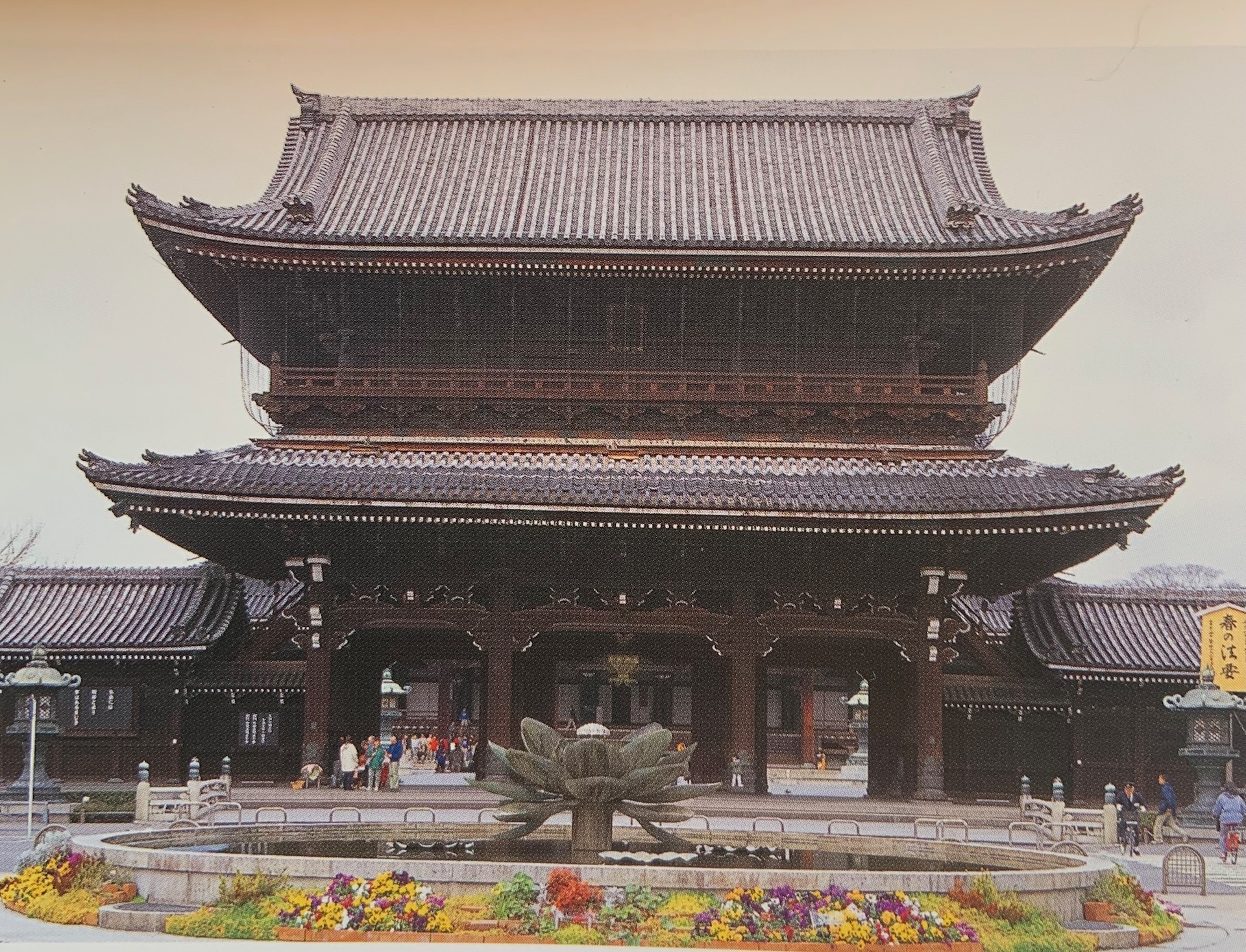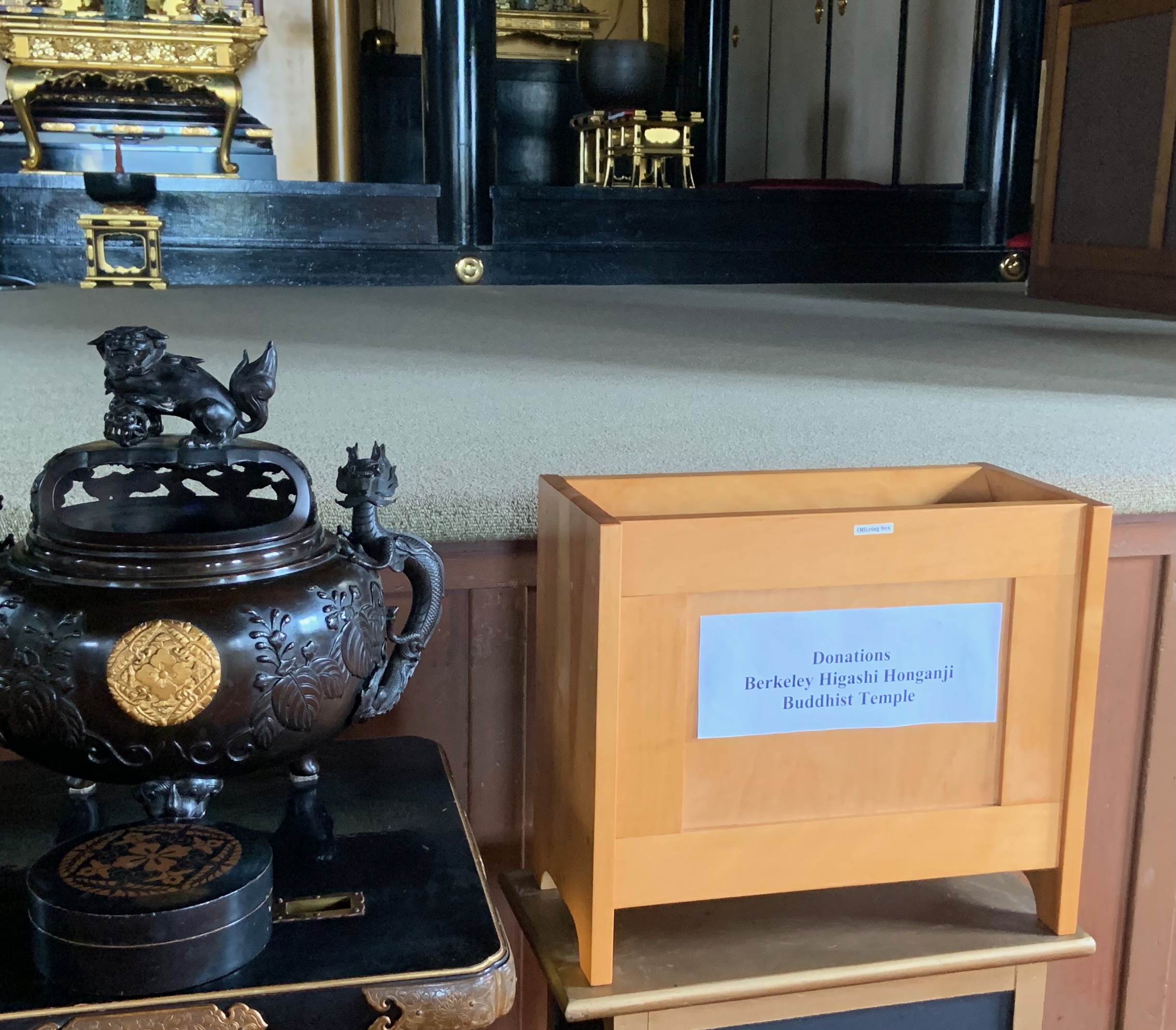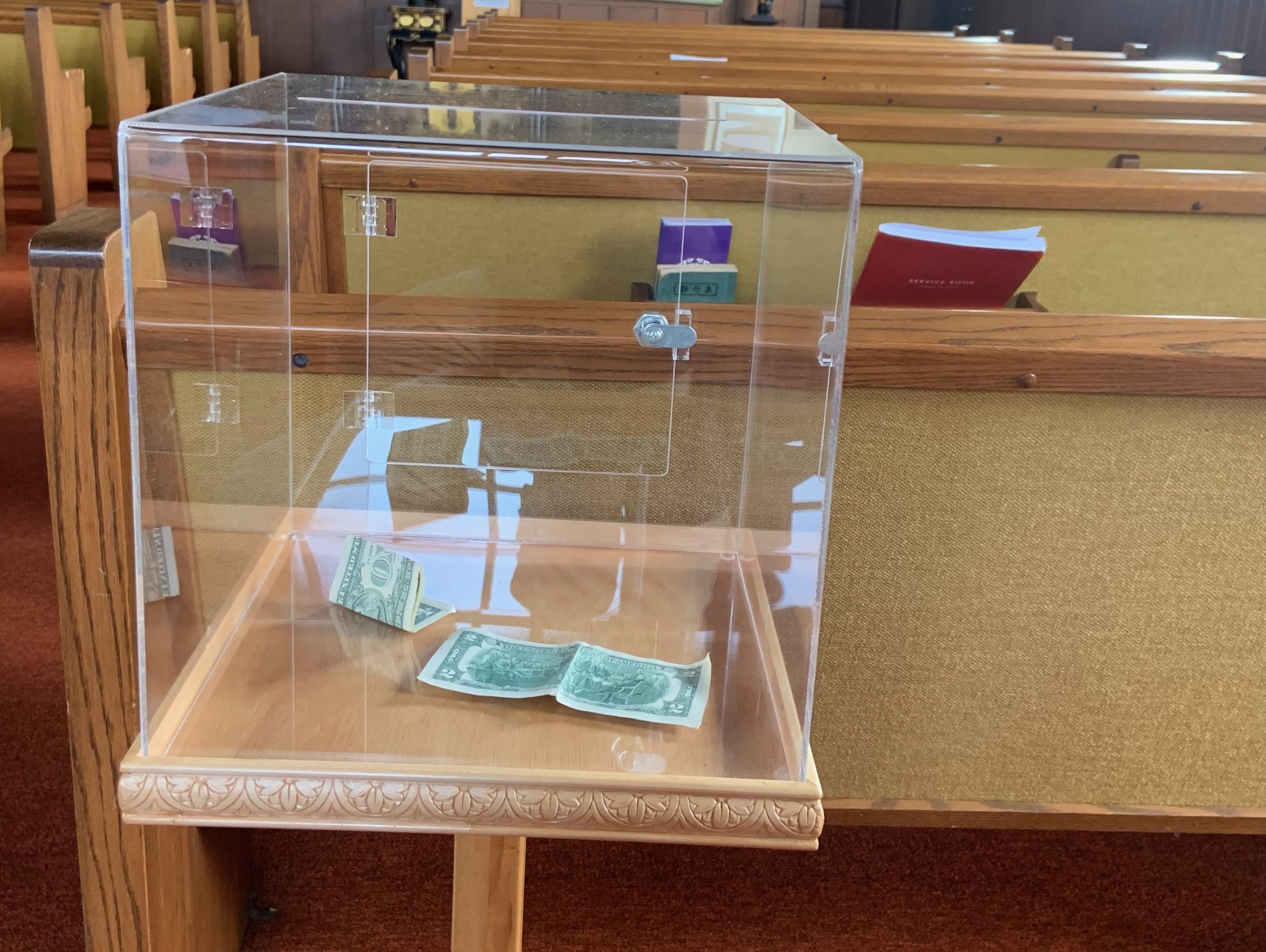 By Rev. Kensho Goto
By Rev. Kensho Goto
Under the Founder’s Hall Gate at Higashi Honganji’s mother temple in Kyoto sits a large wooden box. Such boxes, which seem to contain money, sit near the two main temples, at the foot of each hall’s front steps, and elsewhere on the temple grounds. They are “donation boxes.”
People who come to worship put donations in these boxes and gently place their hands together in gassho, a prayer like position. Giving “alms” is a common practice in Christianity and other religions, but what does it mean for Shin Buddhists?
In Mahayana Buddhism, which emphasizes “togetherness,” the most important practice is called “offering” (fuse布施). This means “sharing,” and also is called “charity” and “giving with pleasure” (kisha喜捨), meaning to serve others brings joy. The act of putting money into a donation box when worshipping at a temple expresses this teaching of charity.

In everyday life, we subconsciously feel that give-and-take must be of equal value. Exchanging equal value and paying the equivalent of what something is worth is the foundation of our economic system. If that’s true, we can easily accept this system. If it’s not true, we feel cheated and think the system is unfair. Thus, certain thoughts arise, such as “I didn’t get my money’s worth,” “Why should ‘I’ give you money,” and “What do I get if I give you something?” These kinds of thoughts are the opposite mindset of giving alms and charitable donations.
Offerings are not just about donating money. They can take various forms. For example, we can greet one another gently with a warm, friendly expression; we can speak with understanding and empathy; we can volunteer in the service of others; we can have a heart that is thoughtful, kind, and considerate. Such actions in our everyday lives are forms of offerings.

When we deeply reflect on life, we understand we’ve been given many things since we were born. We receive many blessings from the land and the seas, the rivers and the forests, and the countless people around us.
Spiritually, we receive the Buddha’s support and encouragement, and in response to our longing to escape our ignorance, we can “awaken to the true and real Buddha land.” Our hearts can fill with joy and gratitude, thanks to the Buddha’s wisdom. We are constantly receiving.
The spirit of “offering” in Buddhism is a most important practice. We should not think, “Because I have given a donation, I must receive something.” We already have received this precious life and are continually embraced by Great Compassion. Let us show our gratitude and appreciation through the act of giving.
-Rev. Goto is a staff member in the Bishop’s Office of Higashi Honganji’s North America District

